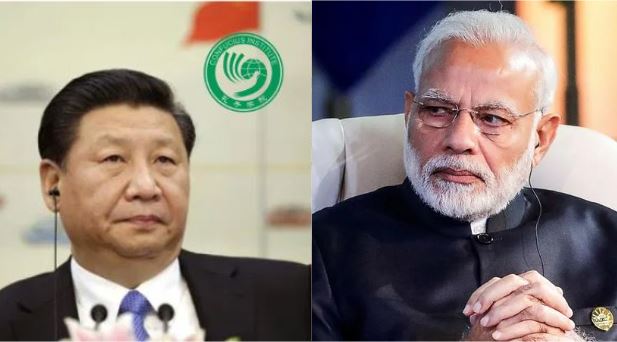With souring bilateral ties and recent Chinese belligerence in Eastern Ladakh, New Delhi has made all attempts to limit the influence of Chinese interests and companies in sectors like railways, highways and telecom. And now, the Modi government could crack down on the Chinese institutions too.
According to HT, people familiar with a July 15 review meeting regarding the penetration of Chinese companies and institutions in India have confirmed plans to reduce the influence of China in the Indian education sector.
According to the HT report, the July 15 meeting revolved around two sectors- telecom and education. Security officials told top bureaucrats that there have been several instances where Universities and colleges tied up with Chinese institutes through collaborations- Memorandums of Understanding (MoUs) without taking requisite approvals.
The officials are said to have cited the example of Confucius institutes, which are Beijing-sponsored institutes that promote the Han Chinese language and culture. Till now, they were under the scanner for censorship and political reasons. But of late, these institutes have been alleged to have become Chinese Communist Party (CCP) propaganda machines around the world.
Sweden has closed Confucius institutes citing security concerns, and within the US also these institutes have come under severe criticism. Two of the largest college campus political organisations in the US are demanding their closure.
The Chinese government-funded Confucius institutes are generally set up in partnership with a local institution. Within India, these institutes have been on the radar of spy agencies for quite some time. As per a 2018 report by Daily Pioneer, Indian intelligence suspect that Beijing is using Confucius institutes worldwide for intelligence gathering.
According to the Daily Pioneer report, the establishment of a Confucius centre in the Mumbai University and the proposal to set up other such institutes in Vellore, Sulur, Coimbatore and Kolkata had sent warning bells ringing for the Indian covert agencies.
In fact, several top Indian Universities and institutes have MoUs and collaborations with Chinese institutes. In 2018, it was reported that the Alliance University, Bangalore signed an MoU with the Fujian Provincial Department of Education, China.
In 2016, IIT Bhubaneswar too signed an MoU with Shanghai Jiao Tong University, China. Similarly, in 2017, IIM Indore signed an MoU with the Central University of Finance and Economics (CUFE), Beijing.
These are, of course, merely examples of a few top Universities that have signed MoUs with Chinese institutes. When these Universities/Institutes had signed the aforementioned MoUs, there was no government policy requiring MHA and MEA approvals for signing MoUs with Chinese institutes. However, now HT has reported that the education and telecom Ministries have been asked to review Chinese involvement in the two sectors.
To be precise, India already has a policy on Chinese involvement in higher education. Last year, in the month of October, the University Grants Commission (UGC) addressed a letter to all Universities, which Mint quoted as saying, “In additions to other clearances, prior approval of the MHA and MEA must be taken by all the academic institutions/universities before signing off MoUs, educational exchange programs, agreements and joint declarations of intent etc…with Chinese universities and institutions.”
As per the Mint report, the UGC had further stated, “For those universities (including private universities and academic institutions), who have already entered into MoU with Chinese universities must seek clearance from MHA for operating the MoU. And till a clearance is obtained, no activity should be performed under the MoU.”
However, HT has now reported that it is unclear if the government followed up with the UGC directives to ensure compliance. Now, the Modi government seems to have made up its mind to carry out an ambitious exercise in order to minimise the role of Chinese institutes.
India’s efforts are in line with the global pattern of limiting Chinese influence in the education sector. Higher education itself has emerged as a strategic sector because China plays unfair when allowed to gain presence in a country’s institutes and universities. When dealing with China, the education sector is no longer a benign and benevolent means of encouraging people-to-people ties.
Having already kicked China out of the telecom and infrastructure sectors, India is now also looking to keep the paper dragon at bay in the education sector.
























